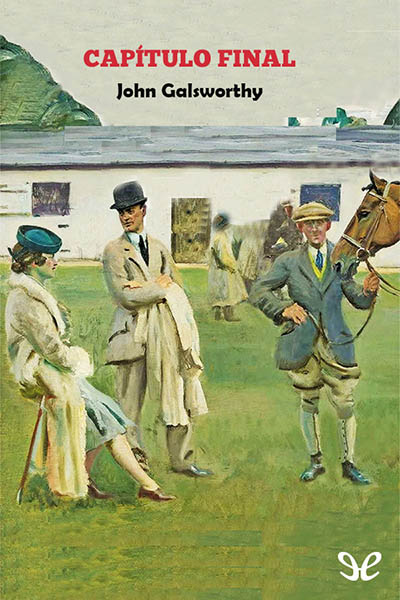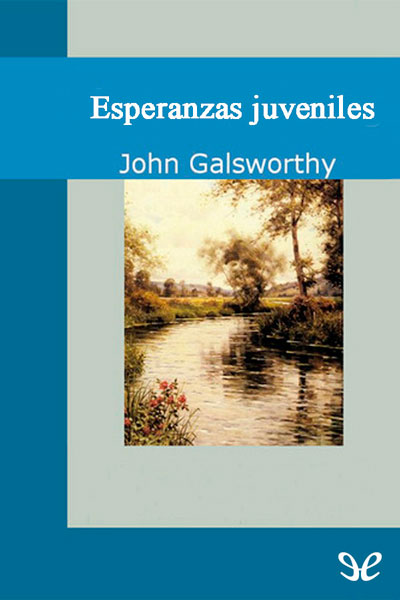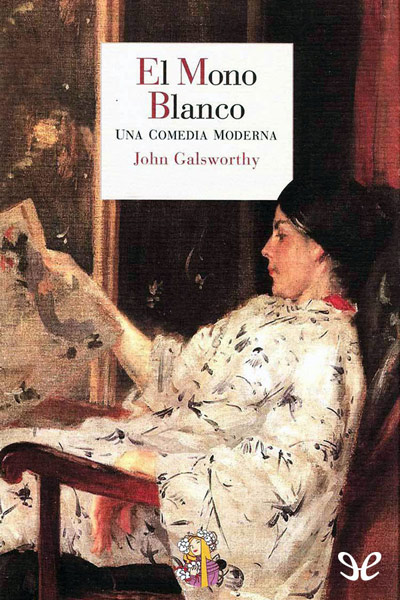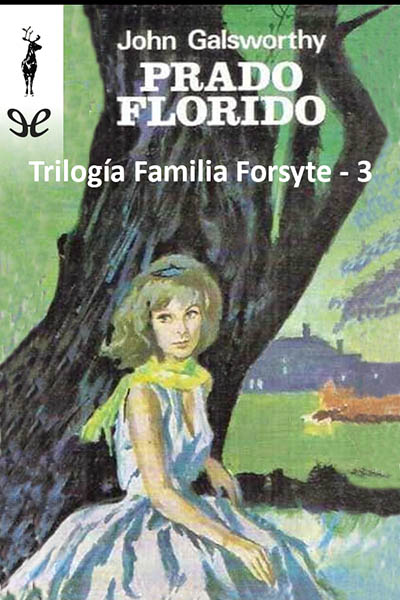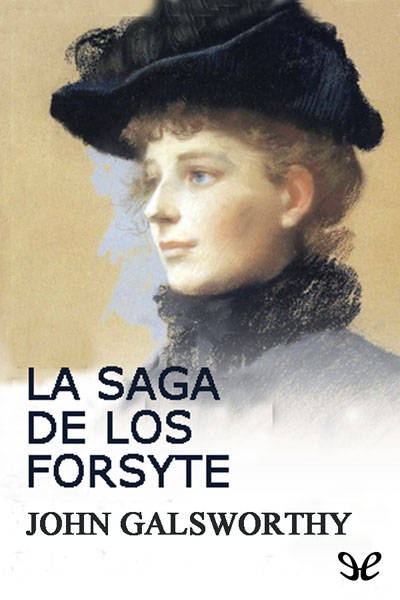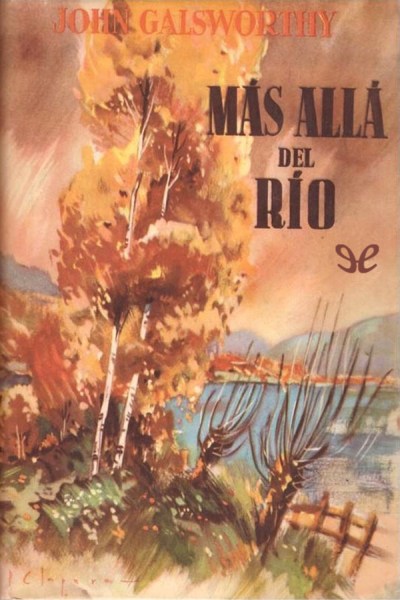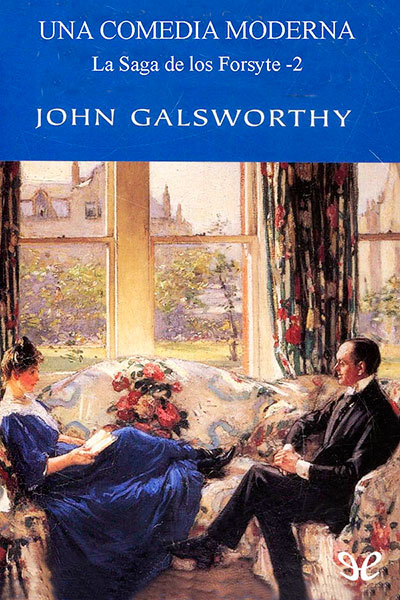oleebook.com
Il patrizio de John Galsworthy
de John Galsworthy - Género: Italian
Sinopsis
Lord Miltoun ha una sconfinata ambizione: primogenito di una nobile famiglia, carismatico e volitivo, è cresciuto con la certezza di essere destinato a grandi cose, e si considera il candidato ideale per diventare il prossimo Primo Ministro d’Inghilterra. I suoi piani vengono sconvolti quando si innamora di Audrey Noel, che si vocifera sia divorziata, ma che in realtà è ancora sposata con un uomo di Chiesa che rifiuta di concederle la separazione. All’improvviso, in una vita da sempre condotta secondo intelletto e con freddo calcolo, si insinua la tentazione di una passione clandestina, potenzialmente rovinosa. Tra splendide dimore di campagna e i palazzi londinesi della politica, ne Il patrizio (1911) l’autore Premio Nobel ha narrato magistralmente il conflitto immortale tra amore e potere, facendo di ogni frase una miniatura, di ogni periodo un arazzo di dettagli.
Descargar
Descargar Il patrizio ePub GratisLibros Recomendados - Relacionados
Rese√Īas Varias sobre este libro
Galsworthy uguale ¬ďSaga dei Forsyte¬Ē. Se si pensa all¬íautore inglese si pensa alla saga familiare, bellissima, che ha sviluppato nel 1906. In realt√† oltre alle vicende dei Forsyte, Galsworthy ha partorito molti romanzi interessanti quali ¬ďLa casa in campagna¬Ē, ¬ďIl primo e l¬íultimo¬Ē, ¬ďAncella-Landa in fiore¬Ē e altri racconti che lo hanno poi portato a vincere il nobel per la letteratura nel ¬í32.
Nelle pagine de ¬ďIl patrizio¬Ē Galsworthy pone sotto gli occhi del lettore quel conflitto, antico come il mondo, tra la brama di potere e il legittimo desiderio di amare la donna del proprio destino.
Tra splendide dimore vittoriane delle campagne inglesi e i palazzi londinesi della politica, susseguono vibrando i vortici del conflitto immortale di amore e potere, contesto politico e sociale.7 s B. WilsonAuthor 8 books8
A Galsworthy Classic
John Galsworthy might be the greatest literary writer of the classic period. I'm convinced that his negative critics we're jealous of his talent.6 s Dana Loo731 6
Sicuramente migliore de La casa di campagna, belle descrizioni, magnifiche caratterizzazioni, introspezioni molto profonde, stile narrativo sofisticato forse un po' penalizzato dalla traduzione non sempre fluida . E' l'amore che ad un tratto destabilizza e lotta vanamente contro le ambizioni, il potere, la casta sociale, e la rinuncia che rappresenta il vero atto d'amore, la vera forza, il coraggio di lasciare andare ...classici4 s Dr.J.G.2,141 21
Beauty of nature, of England and of London, of humans that appreciate it and take it for granted, live it, and imbibe it in different ways in their own lives and their own psyche - and are coming from different castes socially and economically, brought up with, different sets of circumstances, leading to different values and conclusions about life and people - and their interactions that bring joy and pain to more than those that they encounter.
Pure Galsworthy, all of it.
If there is beauty and love and expectation, as is usual in Galsworthy, there is going to be expectation too, and in this the book falls short only in that it stops halfway compared to what one is led to expect if one read Forsyte Chronicles before this. Which a generic reader is ly to have.
But if one has read more than only the superlative Forsyte Chronicles, one is ly also to have realised that that work was probably a more matured, later achievement, while the other works are all leading up to it. This work is probably half way in that it does not lack finesse, but stops short of courage to bring about a satisfactory resolution to the love thwarted by circumstances. Then again, those were the realities of the day and it is probably a good thing to face how it was, even as times were changing. So some were able to go forth in the Forsyte best fashion while others, even the majority of Forsyte clan, were not quite that fortunate.
One will recognise the various characters here as earlier sketches of what matures in Forsyte Chronicles, but it is nevertheless wonderful to go through this, and of course, the lyrical portrayal of beauty of nature as the characters live through it, walk in it, is always lovely, and never same.
.................................................................
Friday, September 18, 2015.
.................................................................1 Richard Thompson2,204 109
Galsworthy has a wonderfully rich writing style that makes his descriptions of nature and physical surroundings pop off the page in full Technicolor. His presentation of the characters' interior emotional lives is similarly deep and detailed. This creates an interesting contrast to the characters' rigid sense of honor, morality and position in society. In their interactions with one another they are extremely reserved, often cold and, as one of the characters says, "dried up." These characters are smart, well meaning, and dedicated to public service. They embody the best qualities of the English aristocracy who built and ran the British Empire and made Britain a model of democracy for the rest of the world, and they are smart enough to see that the world is changing so that they will need to adapt to survive, and yet they are mired in the ingrained habits of generations, and this rigidity is the tragic flaw that drives the story.
This book provided an interesting counterpoint to Thomas Mann's "Royal Highness" which I read earlier this month. Mann's book tells the story of a German duke on the cusp of the twentieth century. Galsworthy's characters, he is rigidly trapped in a cold formalism that had served his ancestors well over many generations but that ultimately led to state of decline symbolized by a birth defect of his hand. The ancient forms had to be broken to pave the way for a return to prosperity and an entry into the modern era. In both books, romance is the vehicle for bringing the the situation to crisis and for providing the pathway to a solution. Mann's story ends far more optimistically than Galsworthy's, but of course we now know with the benefit of 20/20 hindsight that Mann's aristocrats were wiped off the face of the planet by two world wars, whereas Galsworthy's people have managed to soldier on, in a somewhat reduced and evolved condition, but still bearing the marks of their culture.english-literature1 Dr.J.G.2,141 21
Beauty of nature, of England and of London, of humans that appreciate it and take it for granted, live it, and imbibe it in different ways in their own lives and their own psyche - and are coming from different castes socially and economically, brought up with, different sets of circumstances, leading to different values and conclusions about life and people - and their interactions that bring joy and pain to more than those that they encounter.
Pure Galsworthy, all of it.
If there is beauty and love and expectation, as is usual in Galsworthy, there is going to be expectation too, and in this the book falls short only in that it stops halfway compared to what one is led to expect if one read Forsyte Chronicles before this. Which a generic reader is ly to have.
But if one has read more than only the superlative Forsyte Chronicles, one is ly also to have realised that that work was probably a more matured, later achievement, while the other works are all leading up to it. This work is probably half way in that it does not lack finesse, but stops short of courage to bring about a satisfactory resolution to the love thwarted by circumstances. Then again, those were the realities of the day and it is probably a good thing to face how it was, even as times were changing. So some were able to go forth in the Forsyte best fashion while others, even the majority of Forsyte clan, were not quite that fortunate.
One will recognise the various characters here as earlier sketches of what matures in Forsyte Chronicles, but it is nevertheless wonderful to go through this, and of course, the lyrical portrayal of beauty of nature as the characters live through it, walk in it, is always lovely, and never same.
.................................................................
Friday, September 18, 2015.
.................................................................1 Peter McGinnAuthor 11 books3
The Patrician is the final book in Galsworthy’s non-Forsyth saga trilogy that is called Worshipful Society. I am not sure of all of the connections between the three books in this series. I didn’t notice any repeat characters. The tie-in appears to be thematic: the three books all have to do with interaction between the upper class and those in lower classes. Changing morals also play a role, especially with the strictures against divorce and indeed against intermarriage between those classes.
This is my least favorite book in this trio, and not for any qualitative difference in the writing itself. But the subplots involve fewer characters than usual and their stories are interconnected, so the action feels much more narrow and insular than in the other books, or indeed in any of Galsworthy’s Forsyte books. Also, the book seemed to spend a lot of energy working towards possibly upsetting social standards, reflecting the changing of society, but ultimately it arguably merely reinforced those standards. It left me scratching my head, metaphorically speaking. It was the first book of his that tempted me to skip some of the page-long paragraphs as he describes a simple scene of nature or whatever, leading up to what the chapter is about.
I guess I need to take a break from reading his non-Forsyte saga novels.1 Chris CantorAuthor 4 books3
As a Galsworthy fan who has read over twenty of his books, this was my first disappointment - and a big one. I accept that the liking of books is very subjective and others may love this book, but to me it had none of his usual luscious characters. It dealt with three men having frustrating desires, largely due to social conventions, for two separate women, but I kept getting who's who muddled, as their characters did not grab me. IMO George Gissing or Wilkie Collins deal more effectively with their eras' intimate relations social conventions. Also from a writing perspective Galsworthy made repeated sins of over-utilising the words "languid," "languor," and "queer." I have no problem with eccentric characters using "queer" (non-sexual) despite "odd, peculiar, or curious" being more specific, but this was not just one eccentric character. "Queer" was used by several characters and even the author's voice. "Languor" and "languid" were similarly irritatingly frequent. IMO Mr Galsworthy was having an off day when he wrote this!1 CarolineFromConcord434 20
Do you know John Galsworthy? He writes about English upper classes and the constraints of class at the turn of the century (19th to 20th century). I just finished a 1926 Scribner edition of "The Patrician" and d it very much. For one thing, my father signed the inside cover with his name and the words "his book"!
The things I d best were the psychological insight, the humorous understanding of electioneering (no change seen in today's politics), and the lovely descriptive writing. The thoughtful analysis of motivations really helps you understand why Galsworthy characters struggle so between emotion and duty (all sorts of duty, some weirdly self-imposed).
The patrician himself is all intellect, all hard facts. His young sister is more emotional but ultimately within the confines of convention. The two people they become infatuated with are not of their world. What will win out? Adventure or their world? Fascinating to watch the back and forth.1 Bob16
Reading my Grandmother's Classics bookshelf. This is the 1926 Scribner's and Son's edition with no ISBN number. A Classics stiff english novel of the arastocracy.1 bup666 64
It's an interesting look at the psyches of early twentieth century English men and women. 2016 audiobook librivox ...more1 Dave ApplebyAuthor 5 books8
Miltoun is the son of a Lord (also a cabinet minister in a Tory government) whose attempt to get himself elected to the House of Commons might be threatened by his association with a woman who might be divorced. His sister Barbara, a delightfully carefree young lady, is pursued by the very eligible Lord Harbinger but tempted by Mr Courtier, a writer and political radical. As the elder members of the family rally around to fight these twin threats to their privileges, the story evolves into a class-based Romeo and Juliet for both protagonists. Will the younger generation prove independent or will the pressures of the establishment overwhelm love's young dream (and get rid of the lower orders)?
Written in 1910 (the political battle is between the blue Conservatives and the yellow Liberals; there is no hint of a Labour candidate although there is the brief appearance of a rabble of Socialists) and thus with no conception of the tidal waves of change that will sweep the country in the wake of the First World War, this is very much a period piece. The style of writing (it is by the author most famous for the Forsyte Saga, for which he won the Nobel Prize) is Trollopian. Galsworthy's contemporary H G Wells writes much more lively prose. The first part of the book, in which the various dilemmas are outlined, and in which there is a fair amount of action, made for quite quick reading but I got very bogged down in Part Two during which the moral sensibilities of Miltoun were played out in creakingly slow detail.
I suppose it is a strength of the book that in the end I couldn't decide whether the author was attacking the aristocratic caste, who were so wrapped up in their privileges that they couldn't see any other possibility but their own endless rule, or whether he believed that, as one of them puts it, the country needs leading and can only be led by someone whose has been bred and brought up to be a leader.
The book is dedicated to the intellectual Gilbert Murray who married the daughter of the Earl of Carlisle and, I imagine, is the model for Mr Courtier. Simon173 3
A very pale achievement in contrast to Forsyth saga. A novel about the aristocracy at the turn of the 20 th century - 2 lovers are deemed unworthy by the mores of the period and the Valleys family in particular, one for being already married, the other for having ¬ď radical thoughts ¬ď and for not having an aristocratic background. The family and society present a united front in opposing these relationships which wither on the vine. At which point the novel ends.
I’ve given it 3 stars as I am - along with much of the general population in England - a bit of a sucker for period English drama, which this novel has in abundance ! This entire review has been hidden because of spoilers.Show full review John Bowis62
Best known for the Forsyte Saga and locally (to us) for his family home on Kingston Hill, this book is perhaps modelled on his own life - falling in love with his cousin's wife and eventually marrying her - but here leading to an unfulfilled struggle between love of a woman and the lure of politics. Galsworthy writes with an engaging tongue-in-cheek style, observing the manners of the middle classes of his age and their belief in 'noblesse oblige', while around them social mores are changing. Steven Rainer150 42
Autor del comentario:
=================================

